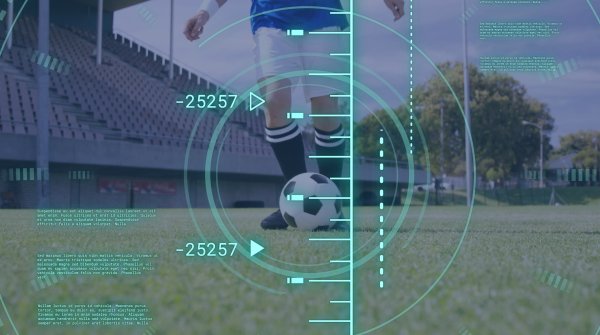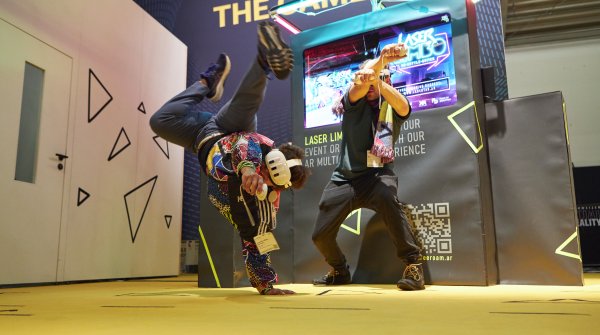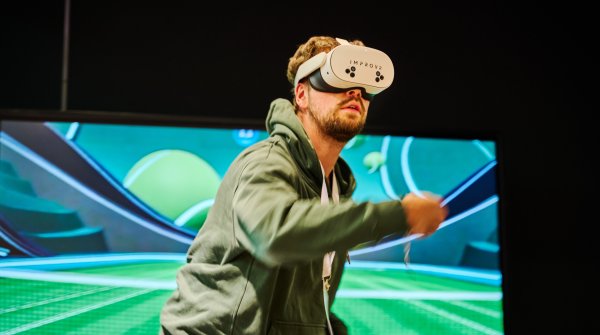
Donata Hopfen turned large sections of German soccer fans against her with an idea in May. According to media reports, drone interviews with players during the game, for example before a penalty is taken, are planned for the Bundesliga. The driving force behind this, he said, was the DFL as the league's lobby under Hopf's chairmanship. The outcry was huge. So great, in fact, that the DFL hastily published a correction. No, there were "no plans whatsoever for drone interviews," it said.
However, the DFL made no secret of the fact that it is currently busily working on completely new concepts for the future. "As pristine as the core of the game is and remains, the role of soccer is changing with the times - and the desires of fans," Hopfen said. "There are incredibly great opportunities ahead - the digital possibilities and formats are far from exhausted." In the future, he said, the Bundesliga wants to be "the most digital soccer league in the world."
But what will sports broadcasting of the future look like? "The number and performance of cameras will continue to increase. Together with specific software, the control room will then be able to show almost every conceivable perspective of the game," Hopfen announced.
In fact, production companies are constantly coming up with new, spectacular camera angles: 8k cams have now spilled over from U.S. sports into the Premier League and the Bundesliga. They deliver impressive images directly from the pitch, for example after touchdowns, goals or during jubilant scenes. With their focus on the stars and the depth of field, the images look like something out of a video game.
Rocket cams and camera drones are already providing unprecedented perspectives, for example when flying over celebrating crowds of fans, accompanying moves always at ball level or daring bike descents.
But all this is just the beginning. The magic word for the broadcast of the future, however, is: POV - Point of View. In these recordings, the sports stars themselves become the camera. Fans experience the spectacle through the eyes of their idols. What once started in action sports with GoPro cameras on helmets is now possible even in team sports thanks to 5G high-speed Internet, cloud and AI support - without OB vans and huge production teams directly to the fans' smartphones.
The technology startup Mindfly is one of the pioneers on the scene. The Israeli company wants to revolutionize sports broadcasts with its bodycams. The camera is incorporated into a bodyshirt under the jersey and, thanks to AI support, always has an eye on the action. It works: At this summer's friendly match between 1. FC Köln and AC Milan, two Cologne players and the referee wore a Mindfly bodycam at chest level, becoming cameramen themselves for breathtaking footage - though not without limitations. "Wearing the bodycam took a bit of getting used to, it was quite warm underneath," Cologne defender Timo Hübers described his camera premiere. The result, however, was impressive.
Mindfly has also agreed to cooperate with the Basketball Euroleague for the 2022/23 season.
However, the POV camera is much more than just another point of view. It can change how we consume sports in general. At a time when individual stars like Lionel Messi, LeBron James or Max Verstappen have more fans and followers than entire teams, especially among the younger generation, individualization offers completely new scope.
Entire streaming subscriptions for individual players would be conceivable. Will we experience an entire season through the eyes of Erling Haaland or our favorite NFL quarterback in 2030?
Thanks to body cams, we could then also experience the full package of sports outside of the main events: For example, streams from training sessions, PR events or simply from the everyday lives of the stars. Here, too, 1. FC Köln and Mindfly have already experimented with bodycam recordings from training sessions. In the social comment columns, the feedback from fans has been almost exclusively positive.
Via app, viewers can switch between players' camera angles. This enables immersion through a "right in the middle" feeling that today's panoramic cameras can't provide.
But it's not just fans who stand to benefit: "Content from the players' perspective is perfect for creating NFT collectibles," Mindfly suggests in its product advertising, for example. A new 100-meter world record run, the decisive goal in the World Cup final, or the match ball for the Wimbledon victory from the perspective of the stars as a status symbol? Bodycam and NFTs make it possible.
Other monetization options such as subscriptions, sporting goods stores or ticket purchases would also be just a tap away when consumed on smartphones. Ad-free content could in turn be offered via additional subscriptions. It's quite possible that the subscription jungle for sports fans will become even denser than it already is.
"At some point, every fan will watch his or her own, specially tailored broadcast," predicts Donata Hopfen: "In the future, young fans in particular will increasingly want to experience sporting events in a virtual environment."
How? For example, through different feeds depending on their interests. For tactics nerds who are sick of "expert analyses" like "Bayern just wanted it more," for example, the data and statistics feed with unprecedented masses of data would be the right one. For such projects, the Bundesliga just launched the "Bundesliga Data Hub" in June together with data provider Deltatre and cloud service Amazon AWS.
Social media addicts and influencers could find happiness in a social feed. The Spanish soccer league LaLiga also experimented in this area recently when it offered live broadcasts with eSports stars and Twitch streamers as commentators.
According to Hopfen, the DFL's goal for these individual offers is "an optimal interplay of reach and monetization.
Individualization is also returning to the summarization of sporting events thanks to new technologies: The start-up Sizzle, for example, offers a technology in which artificial intelligence analyzes full-length sporting events and can compile the best scenes according to numerous parameters.
Those who are only interested in the highlight scenes of their favorite athlete get the matching best-of in the video. Sizzle promises this not only for sports like soccer, basketball or ice hockey, but also for eSports professionals and streamers.
Augmented reality may play an even greater role in the future. In the Bundesliga, the DFL has been using the technology of the AR specialist Supponor has been using the AR specialist's technology since 2018 to display the right perimeter advertising for each country. Fans in the U.S. see different brands on the sidelines than China, and they in turn see different brands than in Germany. With the data that users send to broadcasters via social media and other services, it could even be possible in the future to play out exactly the right perimeter advertising directly in the picture for each fan.
Even individual virtual ads on jerseys, the playing field or Formula 1 cars would be conceivable. In this way, annoying advertising interruptions in the middle of a sports event could be eliminated in the future.
Here, too, 1. FC Köln is an early adopter. In 2022, the club tested augmented reality advertising, which, thanks to technology from the start-up Mirriad, can be automatically displayed at appropriate points in a video by an artificial intelligence system.
Bodycam, augmented reality, different feeds: In the future, we will be able to watch sports more individually and more precisely tailored to our needs and enjoy completely new perspectives and insights. The price of this individuality is the disclosure of even more personal data, but probably also the loss of collectively experienced sports moments that made TV history and whose camera angles and live commentary will be remembered by entire generations.
Even if Donata Hopfen promises the followers of traditional broadcasts: "Those who simply want to enjoy 90 minutes of soccer with beer and bratwurst should be able to do the same in the future."
 SportsTechUnlocking the Future of Sports with AI
SportsTechUnlocking the Future of Sports with AI
- Awards
- Mountain sports
- Bike
- Fitness
- Health
- ISPO Munich
- Running
- Brands
- Sustainability
- Olympia
- OutDoor
- Promotion
- Sports Business
- Textrends
- Triathlon
- Water sports
- Winter sports
- eSports
- SportsTech
- OutDoor by ISPO
- Heroes
- Transformation
- Sport Fashion
- Urban Culture
- Challenges of a CEO
- Trade fairs
- Sports
- Find the Balance
- Product reviews
- Newsletter Exclusive Area
- Magazine




